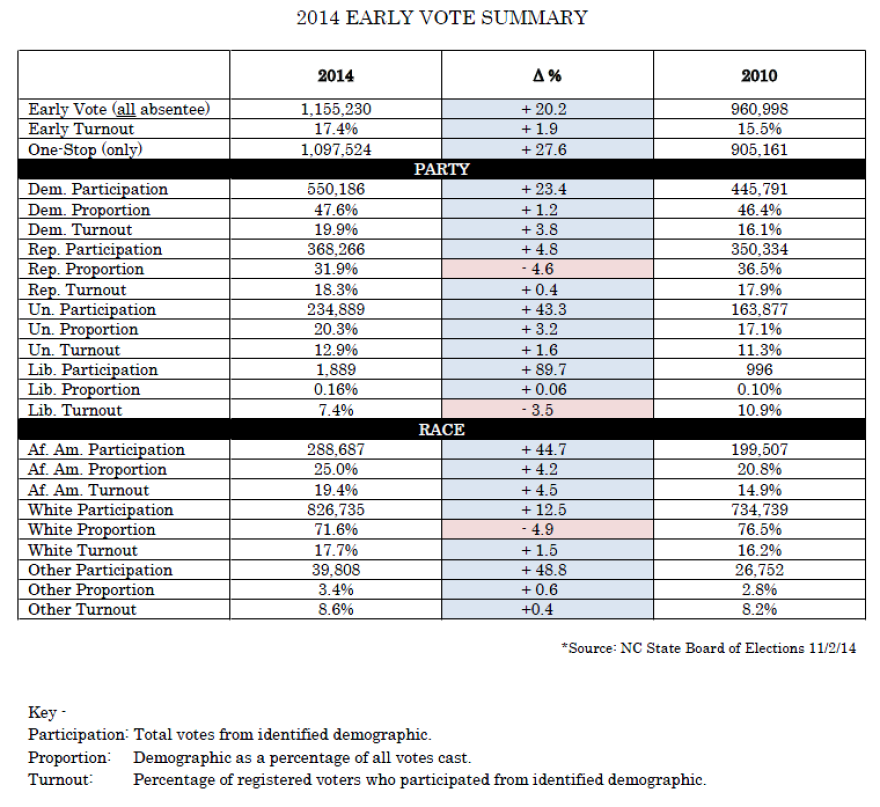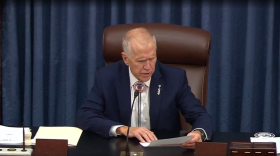More North Carolina voters cast their ballots early this year than did in the last mid-term elections, according to State Board of Elections figures released Sunday. A new election law limited the number of early voting days but increased the total hours.
Roughly 1.1 million people voted by mail or in person at polling stations by the end of early voting on Saturday, up 20 percent from 961,000 in 2010, the board of elections said.
Here are three possible causes for the increased turn-out:
- Liberal groups may have been energized to mobilize voters in response to the law passed by the Republican-controlled General Assembly in 2013, reducing the number of days but increasing the number of hours for early voting, said N.C. State University Political Science Professor Andrew Taylor. Groups including the Southern Coalition for Social Justice and the North Carolina NAACP argue the law will ultimately have the effect of keeping minorities from voting (starting in 2016, the law will require voters to show identification at polling stations). The number of voters registered as Democrats increased by 23 percent while the number of those registered as Republicans increased by 5 percent, according to the board of elections. “There’s possibly some kind of backlash going on,” Taylor said. Here’s a more complete division of votes by party affiliation and race, according to the board of elections:

- Early voting is popular (more than half of voters voted early in 2012 and about a third of voters did in 2010) and may be continuing to become popular, Taylor said.
- The increase could be a result of increased voter interest in the high-profile and competitive U.S. Senate race between incumbent Kay Hagan and North Carolina House Speaker Thom Tillis, said Catawba College Political Science Professor Mike Bitzer. Most polls show the Hagan-Tills campaign as a close contest, while Republican Sen. Richard Burr easily defeated Democratic opponent Elaine Marshall by 12 percentage points in 2010
Political scientists agree that early voting results are not a clear indicator of how particular candidates will perform. The number of votes given to candidates aren’t released until after poll stations close on Tuesday, even though the number of people who voted early was available by Sunday.







